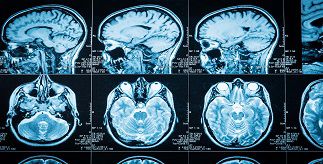BRIDGE Fellows Virtual Seminar Series: Brain Trauma and Ageing & Cognition
- Dates
- Monday 22 February 2021 (15:00-16:30)
- Contact
Please contact Richard Brunt, International Partnerships Officer for more information

To celebrate the importance of the strategic BRIDGE partnership with the University of Illinois at Urbana-Champaign, Professor Tim Softley, Pro-Vice-Chancellor for Research and Knowledge Transfer at the University of Birmingham, and Professor Reitumetse Obakeng Mabokela, Vice Provost for International Affairs and Global Strategies at the University of Illinois at Urbana-Champaign, will host a series of virtual BRIDGE Fellows seminars in which academic colleagues will present and highlight the vital research that is taking place through this important initiative. The second event in the series will focus on Brain Trauma and Ageing and Cognition and will be held on 22nd February at 3.00pm
The BiRmingham-Illinois Partnership for Discovery, EnGagement and Education (BRIDGE) between the University of Birmingham and the University of Illinois at Urbana-Champaign is a signature strategic partnership at the heart of two leading global institutions’ international engagement. Hailed by THE as one of the ‘first substantive links between a UK and US institution’, the BRIDGE partnership is unique in its depth and breadth of engagement. Signed in 2014, the BRIDGE agreement has established a framework for creative knowledge exchange across disciplines through frequent and purposeful collaborations between faculty, staff and students. In the past six years, we have cultivated over 80 faculty-to-faculty links in fields ranging from the humanities to engineering sciences. Our distinctive BRIDGE Fellowship programme brings together international research teams in the UK and the USA and paves the way to institutionalise faculty links. To-date we have jointly recruited a cohort of five BRIDGE Fellows who work across Birmingham and Illinois on key global challenges and act as a bridge to cultivate broader engagement between transatlantic research teams.
Speakers
Dr Valentina di Pietro, BRIDGE Beckman Fellow Brain Trauma, Institute of Inflammation and Ageing
Dr Di Pietro is a Molecular Neuroscientist with a MSc in Molecular Biology, a PhD in Clinical Biochemistry and a further degree in Medical Genetics. With almost 20 years of research experience with particular interest in the molecular mechanisms of TBI, she is an expert of in vitro and in vivo animal models of TBI. She currently leads the research efforts on microRNA signatures in biofluids to diagnose mild and severe TBI in patients. As the recipient of the prestigious BRIDGE Fellowship in Brain Trauma, she is a Research Fellow at the Institute of Inflammation and Ageing of the University of Birmingham (UK), collaborating with the Beckman Institute at the University of Illinois, Urbana-Champaign (USA) on TBI neuroimaging research.
Dr Magda Chechlacz, BRIDGE Beckman Fellow Aging and Cognition, School of Psychology
Dr Chechlacz is broadly interested in understanding how variability in the neurochemical, structural and functional organisation of the brain affect cognitive functions and relates to individual differences in human behaviour and in susceptibility to cognitive ageing and mental health problems. Her work combines cognitive assessment of attentional functions with spherical deconvolution tractography, resting state connectivity analysis, brain stimulation and genetics.
Dr. Patricia Jones Associate Director for Research, Beckman Institute University of Illinois at Urbana-Champaign
Patricia M. Jones is the Associate Director for Research at the Beckman Institute of Advanced Science and Technology at the University of Illinois at Urbana-Champaign. In this role, she provides management oversight over a variety of research programs and the Beckman centralised research facilities. From September 2010 through February 2012, she was the Deputy Director of Exploration Technology at NASA Ames Research Center, where she had oversight over a workforce of 700 civil servants and contractors doing research and technology development on entry systems, intelligent systems, supercomputing, and human-systems integration.
Dr. Aron Barbey, Professor of Psychology, Neuroscience and Bioengineering Beckman Institute University of Illinois at Urbana-Champaign
Aron K. Barbey is Professor of Psychology, Neuroscience, and Bioengineering at the University of Illinois at Urbana-Champaign. He is co-chair of the Intelligence Systems Research Theme, leader of the Intelligence, Learning, and Plasticity Initiative, and director of the Decision Neuroscience Laboratory at the Beckman Institute for Advanced Science and Technology. He received a Ph.D. in Psychology from Emory University in 2007 and completed a research fellowship in Cognitive Neuroscience at the National Institutes of Health in 2011. Professor Barbey’s research investigates the neural mechanisms of human intelligence and decision making, with particular emphasis on enhancing these functions through cognitive neuroscience, physical fitness, and nutritional intervention.
Dr Andrew Bagshaw, Co-director of the Centre for Human Brain Health University of Birmingham
Dr Bagshaw's main interest is in developing and applying non-invasive neuroimaging methods to questions in clinical and behavioural neuroscience. Current work in the Multimodal Integration Group (MIG) focuses on using EEG-fMRI to understand the influence of ongoing brain activity on evoked and behavioural responses, and to examine the localisation and functional significance of electrophysiological discharges in epilepsy and sleep. The group is also working on methods to combine structural and functional brain networks in order to shed light on how sleep and epilepsy affect the brain.
Mr Antonio Belli, Professor of Trauma Neurosurgery Institute of Inflammation and Ageing University of Birmingham
Mr Belli is a Professor of Trauma Neurosurgery and Director of the Surgical Reconstruction and Microbiology Research Centre (SRMCR) based at the Queen Elizabeth Hospital Birmingham. The SRMRC is a leading centre for trauma research and was founded in 2011 with £20M grant from NIHR, MoD, the University of Birmingham and University Hospitals Birmingham. He heads the neurotrauma research theme, which carries out translational research on traumatic brain injury and spinal cord injury. He is also a practising neurosurgeon at the Queen Elizabeth Hospital where he leads the Neurotrauma service comprised of a formidable team of doctors, nurses and therapists.